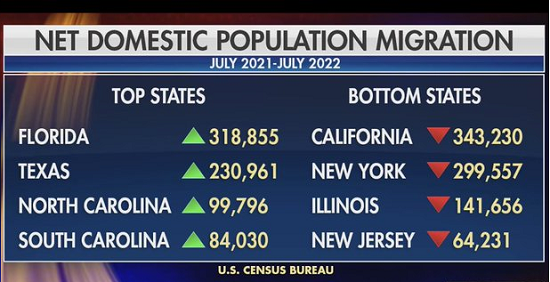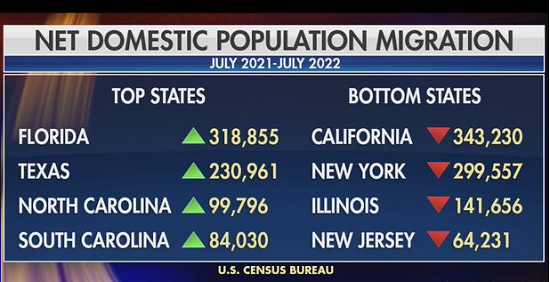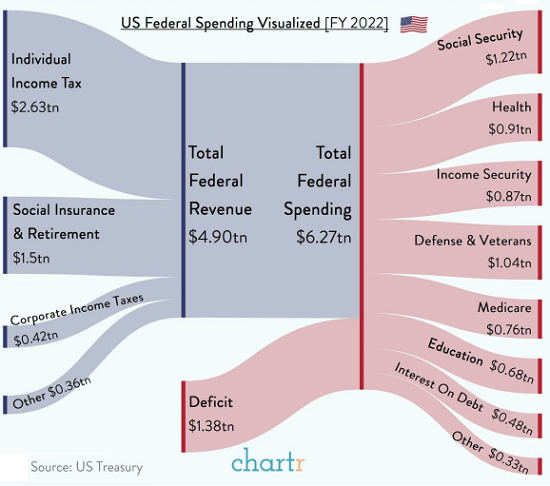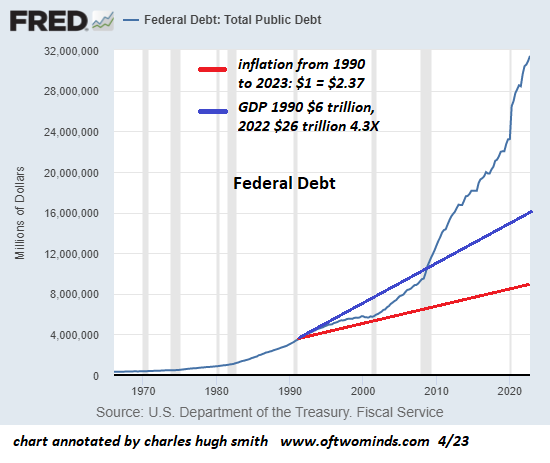
Solutions are plentiful, we just have to try to find them in the best places.
In spite of my reputation as a doom-and-gloomer, all of my work is about options. The first step in determining reasonable options is to do without the disruptive clutter of fantasies, a process that is dismissed as doom-and-gloom. But if we latch onto dreams as services, we can’t proceed to real-world services.
For four generations (80 years), we have actually become familiar with seeking services from the federal government. This dependence on massive solutions started with the federal actions to the Great Depression and after that gathered steam in World War II and the Cold War. By the 1960s, federal programs, policies and spending were the go-to options for every single problem.
The federal government tends to be reactive. This is the nature of federal government, which is naturally dominated by elites and entrenched interests whose objective is to preserve their share of wealth and power by keeping the status quo in its current setup. Any essential modification that threatens effective interests is naturally shelved.
The net result is the federal government just set up environmental-protection regulations after American rivers caught fire. It takes a tremendous level of nationwide pain to overcome the resistance of established powers in the central state.
The other reason why federal policies are the go-to services is the cash: no other entity can borrow or print money on such a huge, continual scale. And considering that the Federal Reserve/ federal government can money costs without any noticeable sacrifices being enforced– additional spending is cost-free other than boosts in the interest due on the greater financial obligation– then everybody turns to the federal funding-spigot as a service to any and all issues.
Therefore it’s to be expected that most of proposed options center on top-down, centralized-state policies. If only we had sound money, a reasonable tax system, more guidelines against scams, and so on.
The issue in pursuing services at the top level of centralization is the competitors to control the levers of federal power is extreme: every concentration of wealth and power is putting cash and effort into influencing federal policies, and watering down or blocking any policy modifications that may reduce their share of the wealth-power pie.
The net outcome is the legal “sausage-making” process in which numerous pages of legislation must initially be authorized before we know what remains in the numerous pages of brand-new laws/ policies. However the competitors and procedure enables us to predict the general material: every entrenched interest impacted by the legislation has placed subsidies, tax breaks, exceptions, and so on to secure their share of the federal money-trough.
The federalist structure of the Constitution grants substantial governmental powers to each state, and state federal governments approve substantial governmental powers to counties and cities. Unlike the federal government, state, county and local government can not print money, and their capability to borrow via community bonds eventually deals with limits due to credit rankings and the interest due on previously released bonds.
This suggests city governments must make compromises and sacrifices to fund brand-new initiatives. This incentivizes more practical problem-solving procedures.
As a basic guideline, all solutions need to be implemented at the local level, therefore this is where the rubber fulfills the road in options. Cities and counties have to deal with the truths of their area, financing, populace, etc on a granular level, therefore useful options end up being more appealing than ideological-driven policies.
This structure makes it possible for competition in between states, counties and cities for capital and skill. Each proposed solution pursued on the regional level is more or less effective, and capital and talent will gradually be drawn to areas that handle practical, successful services to real-world problems. Those locales whose services fail to fix real-world problems while consuming tax revenues will lose capital and talent.
This feedback isn’t perfect, obviously. Places considered as beneficial to capital and skill will grow too quick, frustrating infrastructure and minimize the qualities that attracted new locals in the very first location.
However the systemic influence of open competition eventually encourages practical, cost effective, versatile services and discourages pricey attempts at services which stop working to resolve problems.
People with little voice at the federal level have a lot more of a say on the regional level. It’s possible to get to city government decision-making entities and get a reasonable hearing. Solutions need to fit regional restraints, and this encourages experimentation. Costly, cumbersome proposals are just off the table. Imaginative, low-cost, low-bureaucracy options are more likely to get a hearing.
Then there’s a vast range of individual/ household services. If the scenario is essentially undesirable, then moving to a more beneficial location is one possible service. Moving to a more sustainable, flexible, favorable income and way of life is likewise a possibility. So is decreasing reliance on long supply chains and scenarios that can only burn us out.
All of my 18 books are efforts to mark issues and describe the describes of possible solutions. The most current 3 are: Worldwide Crisis, National Renewal, Self-Reliance in the 21st Century and When You Can’t Go On: Burnout, Reckoning and Renewal.
Solutions are plentiful, we just have to look for them in the best locations.



 My new book is now offered at a 10 % discount($8.95 ebook,$ 18 print): Self-Reliance in the 21st Century. Read the first chapterfree of charge(PDF) Check out excerpts of all three chapters Podcast with Richard Bonugli: Self Reliance in the 21st Century (43 min)My
My new book is now offered at a 10 % discount($8.95 ebook,$ 18 print): Self-Reliance in the 21st Century. Read the first chapterfree of charge(PDF) Check out excerpts of all three chapters Podcast with Richard Bonugli: Self Reliance in the 21st Century (43 min)My
recent books: The Asian Heroine Who Seduced Me(Unique)
print$10.95, Kindle$ 6.95 Read an excerpt totally free (PDF)
When You Can’t Go On: Burnout
, Reckoning and Renewal$ 18 print,$ 8.95 Kindle ebook; audiobook Read the first section for free(PDF)Worldwide Crisis, National Renewal: A(Revolutionary )Grand Technique for the United States(Kindle$9.95, print$24, audiobook)Check Out Chapter One totally free (PDF ). A Hacker’s Teleology: Sharing the Wealth of Our Diminishing Planet(Kindle$ 8.95, print$20, audiobook$17.46)Read the first area totally free(PDF). Will You Be Richer or Poorer?: Revenue, Power, and AI in a Traumatized World
(Kindle $5, print$10, audiobook) Read the very first area totally free(PDF). The Adventures of the Consulting Thinker: The Disappearance of Drake
(Unique)$4.95 Kindle,$ 10.95 print); read the very first chapters free of charge (PDF)Cash and Work Unchained $6.95 Kindle,$15 print)Check out the very first area totally free End up being a$1/month client of my work via patreon.com. Register for my Substack
free of charge NOTE: Contributions/subscriptions are acknowledged in the order received.
Your name and email stay confidential and will not be given to any other individual, business or firm. Thank you, Paul C.($300), for your beyond-outrageously generous contribution to this website– I am greatly honored by your steadfast assistance and readership. Thank you, Julius L.($ 50), for your superbly generous contribution to this site– I am significantly honored by your support and readership. Thank you, Michael T. ($35)
, for your magnificently generous contribution to this website– I am significantly honored by your steadfast support and readership. Thank you, Sarah S.($1/month), for your most generous pledge to this website– I am greatly honored by your assistance and readership.

